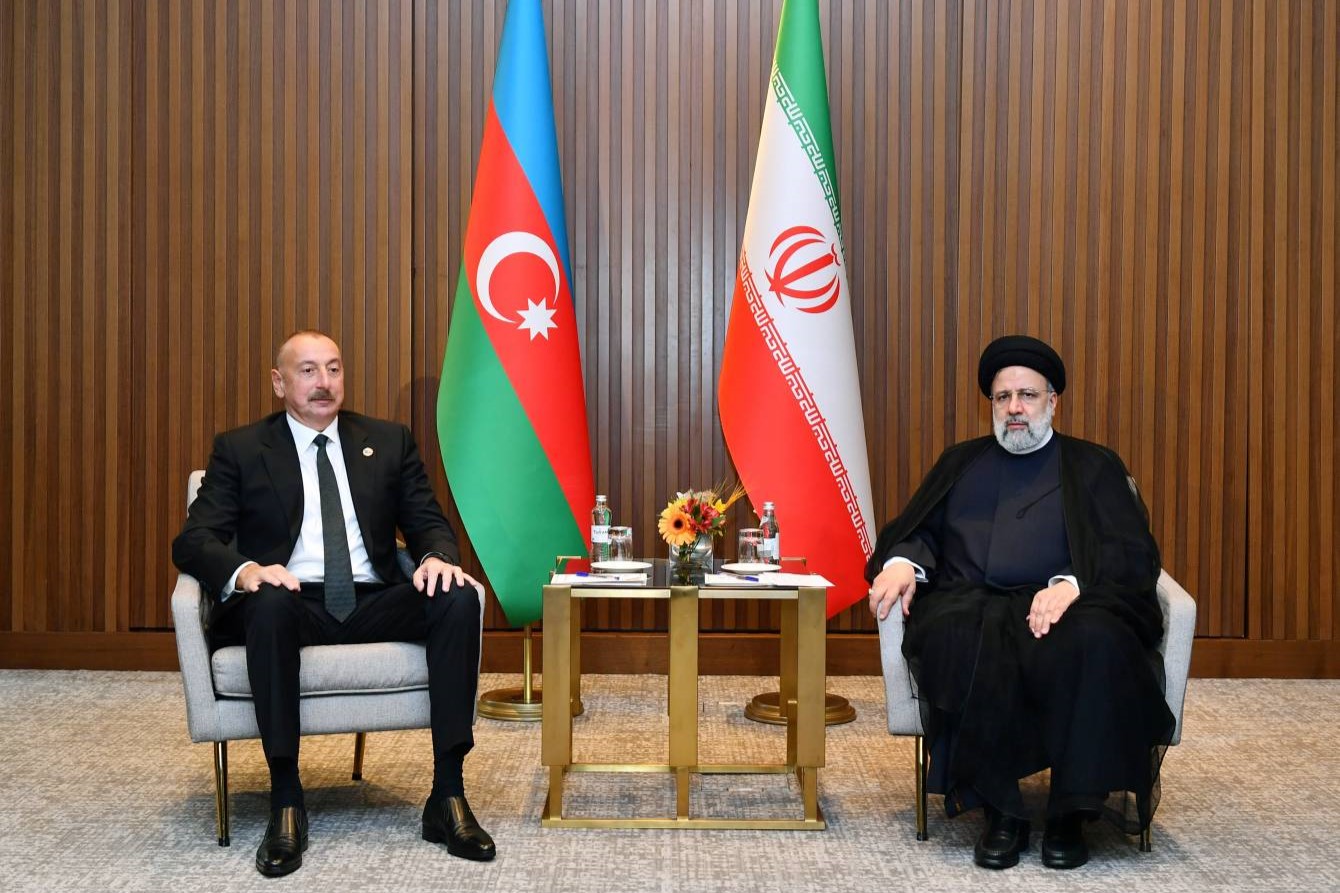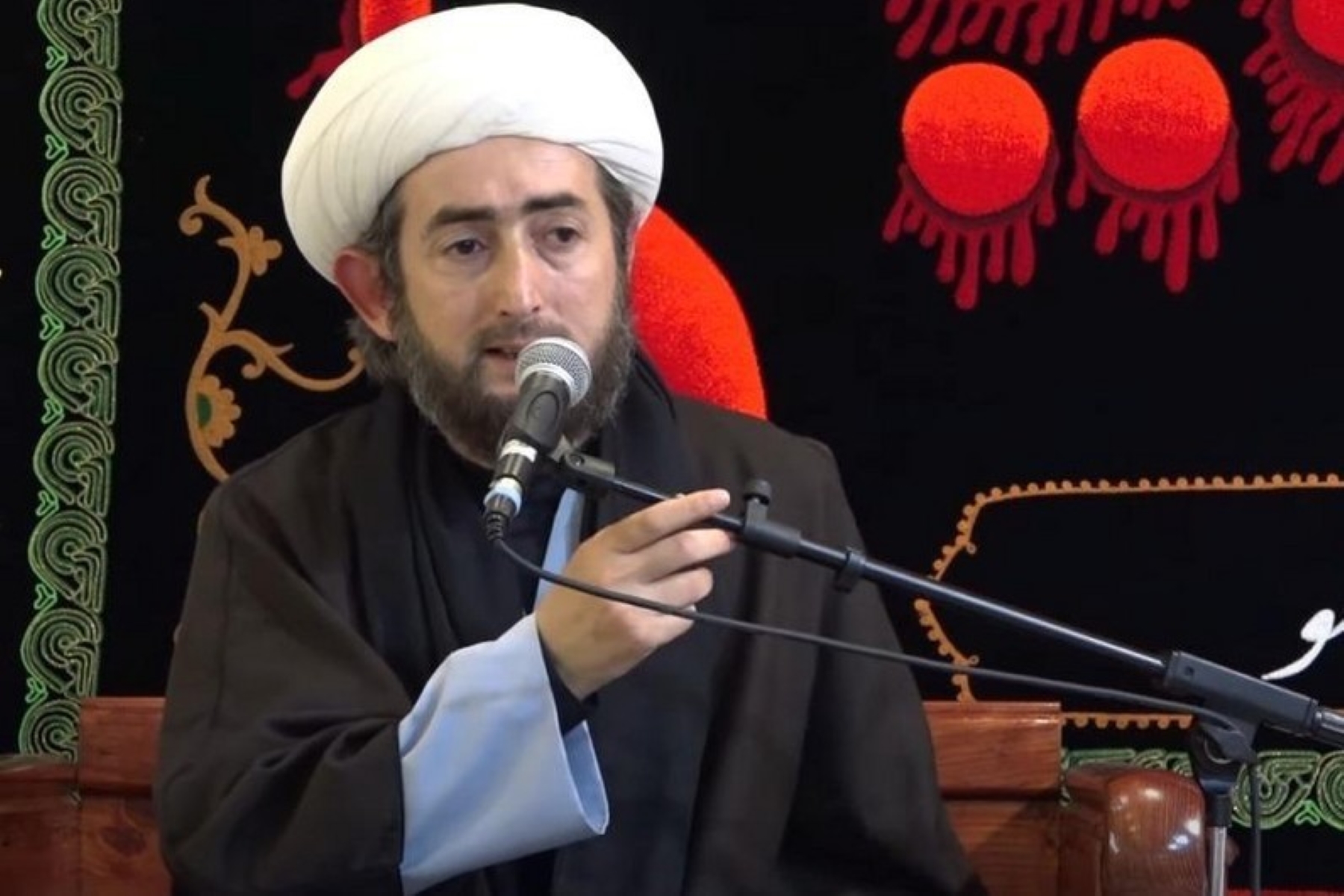‘Irrationality is subjective’: fears rise of conflict between Iran and Azerbaijan

Long-simmering tensions between Azerbaijan and Iran have risen to a boil in recent months, with military drills on the border and escalating accusations. In the wake of an attack on Azerbaijan’s embassy in Tehran, some worry that those words could precede actions.
On the morning of 27 January, a man ran into Azerbaijan’s embassy in Tehran armed with a Kalashnikov assault rifle and opened fire. He killed the embassy’s head of security and injured two others before a member of staff wrestled control of the gun from him, allowing the attacker to be arrested by the police.
Both Iran and Azerbaijan’s state-aligned media swiftly reported the story, but the two took notably different angles.
While Iran’s police chief and media described the incident as a rogue escalation of a family conflict, Azerbaijani outlets immediately disputed those accounts. They alleged that Iran was deliberately ‘distorting the nature of the incident’, with some even claiming that Iran’s special services were behind the attack.
Azerbaijani state officials soon followed suit, declaring that all embassy employees would shortly be evacuated, as Iran had failed in its duty to protect the embassy.

Azerbaijani writer and political analyst Samad Shikhi describes the embassy attack as ‘the peak’ of Iran and Azerbaijan’s tensions.
‘Not even a day after the incident, Ilham Aliyev referred to the incident as an act of “terror”. For an event to be classed as terrorism, it must have an ideological, political, or religious basis. But [Aliyev] was announcing his position by describing the incident in such a way without investigating its cause’, says Shikhi.
While the Azerbaijani response might appear disproportionate to what could have been an isolated, if tragic incident, it was the latest escalation in a diplomatic conflict that has grown increasingly heated since late 2022.
‘A similar situation has not arisen before’
Iran and Azerbaijan have long been at odds. Azerbaijan’s tight alliance with Turkey and Israel has been a long-running source of friction, while Iran’s cosy relations with Armenia, particularly since Azerbaijan’s victory in the 2020 war, have been poorly received by Baku.
Both countries also have factions who lay historic and present-day claims to the territory of the other.
While some groups in both Azerbaijan and northern Iran have expressed a desire to unite ‘southern Azerbaijan’ with Azerbaijan proper, Iranian members of parliament have pointedly noted that the country was historically a part of the Iranian Safavid Empire, and suggested that Iran annex Azerbaijan’s autonomous exclave of Nakhchivan.
Since the settlement that ended the 2020 Second Nagorno-Karabakh War was agreed, discussions of either a road or ‘corridor’ that would connect western Azerbaijan to Nakhchivan have added fuel to the fire.
If Azerbaijan got its way, the route could run along Armenia’s southern border with Iran. This would both potentially block direct Iranian access to Armenia, forcing it to access the Caucasus through Azerbaijan, and mean that Azerbaijan would no longer be forced to access Turkey and Nakhchivan through Iran.
In late 2022, these underlying tensions turned into action.
After Tehran blamed an Azerbaijani citizen for an attack on a mosque in Shiraz in October, Azerbaijan’s State Security Service announced that it had intercepted a network of spies working for Iran in Azerbaijan, with both countries going on to launch military drills near their shared border.
This escalation was matched by a rhetorical shift. Speaking after Iran ran military exercises in the north of the country, Azerbaijan’s President Ilham Aliyev stated in November 2022 that Azerbaijan had organised their own military drills near the Iranian border ‘to demonstrate that we are not afraid of them’.
Speaking at a conference of Turkic states, Aliyev announced that Azerbaijan would ‘do everything’ to protect the rights, freedoms, and security of Azerbaijanis living abroad, ‘including Azerbaijanis in Iran’. He added that he was determined to ensure that they ‘remain loyal to the ideas of Azerbaijanism, and never cut ties with their historical homeland’.
‘They are part of our nation’, said Aliyev.
Azerbaijan’s president also indicated that relations were particularly challenging with the Raisi government.
‘I have worked with three presidents of Iran — Khatami, Ahmadinejad, and Rouhani. In all these years, a situation similar to today’s has never arisen’, said Aliyev. ‘Never has Iran held two military exercises on our border within a few months. Never has it been so full of hatred and threats against Azerbaijan.’

A few weeks later, Azerbaijan conducted a large-scale joint military exercise in cooperation with Turkey on the country’s southern border with Iran.
The hostility has continued apace this year, with a series of detentions of alleged Iranian spies in Azerbaijan, and a month later, another conflict erupting after an Iranian military plane trailed the countries’ border.
A threat to Iranian identity
Shujaat Ahmadzada, a Baku-based political analyst and conflict expert, told OC Media that Azerbaijan’s ‘national identity’ was a threat to Iran on two fronts: firstly, he says, it provokes the idea that Iranian Turks could have a nation-state, in contrary to Iran’s ‘strategy of national unification and assimilation’.
Azerbaijan’s secularity also provides an alternative to the ‘theocratic lifestyle promoted by the Islamic regime’, claims Ahmadzada, and so threatens the pillars of political control.
It is for these reasons, he says, that anti-Azerbaijani discourse in Iran focuses on denying Azerbaijani identity, statehood, and history.
For example, responding to Aliyev’s comments in late 2022, Iranian MP Seyed Alborz Hosseini implied that Azerbaijan would still be a part of Iran were it not for the Treaty of Gulistan, signed between Iran and the Russian Empire in 1813 and ceding control of Azerbaijan and other regions of the Caucasus to Russia.
At the same session of parliament, another MP, Mohammad Reza Mirtajuddin, called for Iran to annexe Azerbaijan’s autonomous exclave of Nakhchivan.
The MP also called for President Aliyev to ‘note that Azerbaijan separated from Iran, not the other way around.’
While Azerbaijani nationalists in Azerbaijan and Iran have called for the unification of northern Iran with Azerbaijan, officials have steered clear of the issue, instead focusing their criticism on Iran’s tight ties with Armenia.
‘[Iran] pumps gas, builds roads, sells weapons, and sends soldiers to Armenia’, said Jeyhun Mammadov, of the ruling New Azerbaijan Party, in Azerbaijan’s parliament in December 2022.
Mammadov went on to accuse Iran of ‘disruptive activities’ within Azerbaijan, suggesting that the country was ‘filling people’s brains with poisonous ideas and ideologies’.
Similarly, member of parliament Sabir Rustamkhanli stated that Iran was denying tens of millions of Azerbaijani Iranians ‘the right to their mother tongue […] while 100,000–150,000 Armenians [in Iran] have schools, press, and churches’.
He added that Iran had supported Armenia in ‘occupying’ territory previously under Azerbaijani control, and participated in the territories’ destruction.
‘The transportation of weapons to Armenia through Iran during the second Karabakh war is not a secret to anyone’, said Rustamkhanli. ‘The Iranian regime brings its own end without any outside intervention.’
A carefully maintained enemy
Azerbaijani writer and political analyst Samad Shikhi believes that Azerbaijan has been deliberately building Iran into an enemy as a scapegoat.
‘Azerbaijan wants to present Iran as a new enemy. In fact, however, the country is not a new enemy, but a carefully maintained one’, Shikhi told OC Media.
He says that while in previous years, the idea that Iran was an enemy and opponent of Azerbaijan was expressed tacitly, in the last half year the idea has been expressed officially, by members of parliament and even Azerbaijan’s president.
‘Discussing the issue in words is not enough for them’, says Shikhi, ‘their agenda is also apparent in their actions’.
He cites examples of anti-Iranian propaganda on television, the arrest of Azerbaijanis who had studied religion in Iran, and protests held in front of the Iranian embassy in Baku.

Shikhi says that the uses of Iran as an enemy for Azerbaijan are evident: one example is in Azerbaijan’s land borders, which have remained closed for three years now, allegedly to prevent the spread of COVID-19.
‘They are able to keep the land borders closed and use propaganda to convince people that this is because of the “threat from Iran” and Russia’s war with Ukraine’, says Shikhi.
He also notes that Azerbaijan’s ties with Israel have played a significant role in raising tensions.
Israel is known to have supplied Azerbaijan with weapons during the Second Nagorno-Karabakh War, and, in February 2023, Azerbaijan appointed its first ambassador to Israel.
Shikhi cites Azerbaijani MP Fazil Mustafa, who said in parliament that Azerbaijan should ‘ask Israel not to hit Tabriz’, a city in northern Iran with a majority ethnic-Azerbaijani population, because ‘we need it to prosper’.
‘States occasionally commit irrational acts on purpose’
Regarding the threat that the conflict might break out beyond the bounds that it has occupied so far, Ahmadzada is ambivalent.
He says that Azerbaijan is in a more powerful position than before, in light of the new balance of power that emerged after the Second Nagorno-Karabakh War and closer ties between Azerbaijan and Turkey.
Nonetheless, Iran remains significantly larger and more militarily capable than Azerbaijan, which attempts to maintain balance by strengthening cooperation with states that are traditionally enemies of Iran: Turkey, Israel, Saudi Arabia, and Pakistan.
The substantial power differential between the two countries means that Iran’s Turkic population, and not Azerbaijan, is the key actor in this situation, Ahmadzada says.
He adds that, while he believes that Iran is more likely to initiate conflict than Azerbaijan is, it would be ‘irrational’ for either side to choose to go to war.
‘First of all, if armed violence is used, there is a strong likelihood that the conflict would intensify, spread to other regions, and possibly even become global.’
He cites Azerbaijan’s alliances with Turkey and Israel, the former having demonstrated its willingness to intervene on behalf of Azerbaijan in the Second Nagorno-Karabakh War, the latter having frequently indicated it is prepared to undertake military action against Iran.
He adds that an attack on Azerbaijan could cause domestic issues for Iran, due to the 25 million–40 million Azerbaijani-Iranians living in the country; 30–45% of the country’s population, and greater than the total population of Azerbaijan.
‘For the Iranian side to initiate military action would be an entirely irrational action. However, it should be noted that irrationality is rather subjective and that states occasionally commit irrational actions on purpose.’
How relations play out in the weeks and months to come remains to be seen.
Ahmadzada notes that, regardless of specifics, any resolution is unlikely to be swift.
‘The origin of the crisis in Azerbaijan and Iran’s relations is systemic’, he says.
‘In such systemic conflict situations, it is sometimes possible to act fast and in a modest, declarative way to get out of a difficult position, but you must realise that unless the systemic roots of the dispute are addressed, the conflict will persist in some way.’








